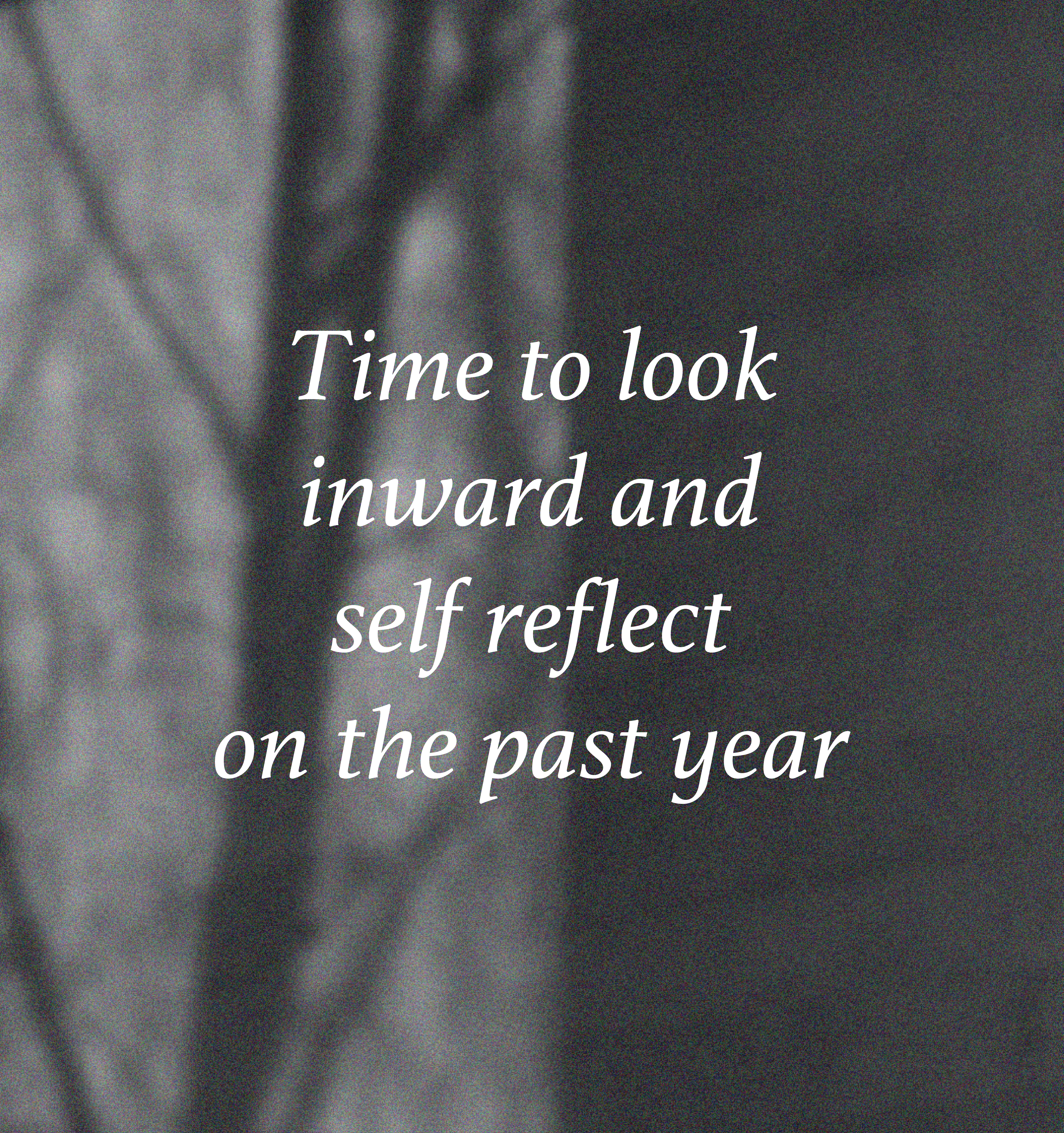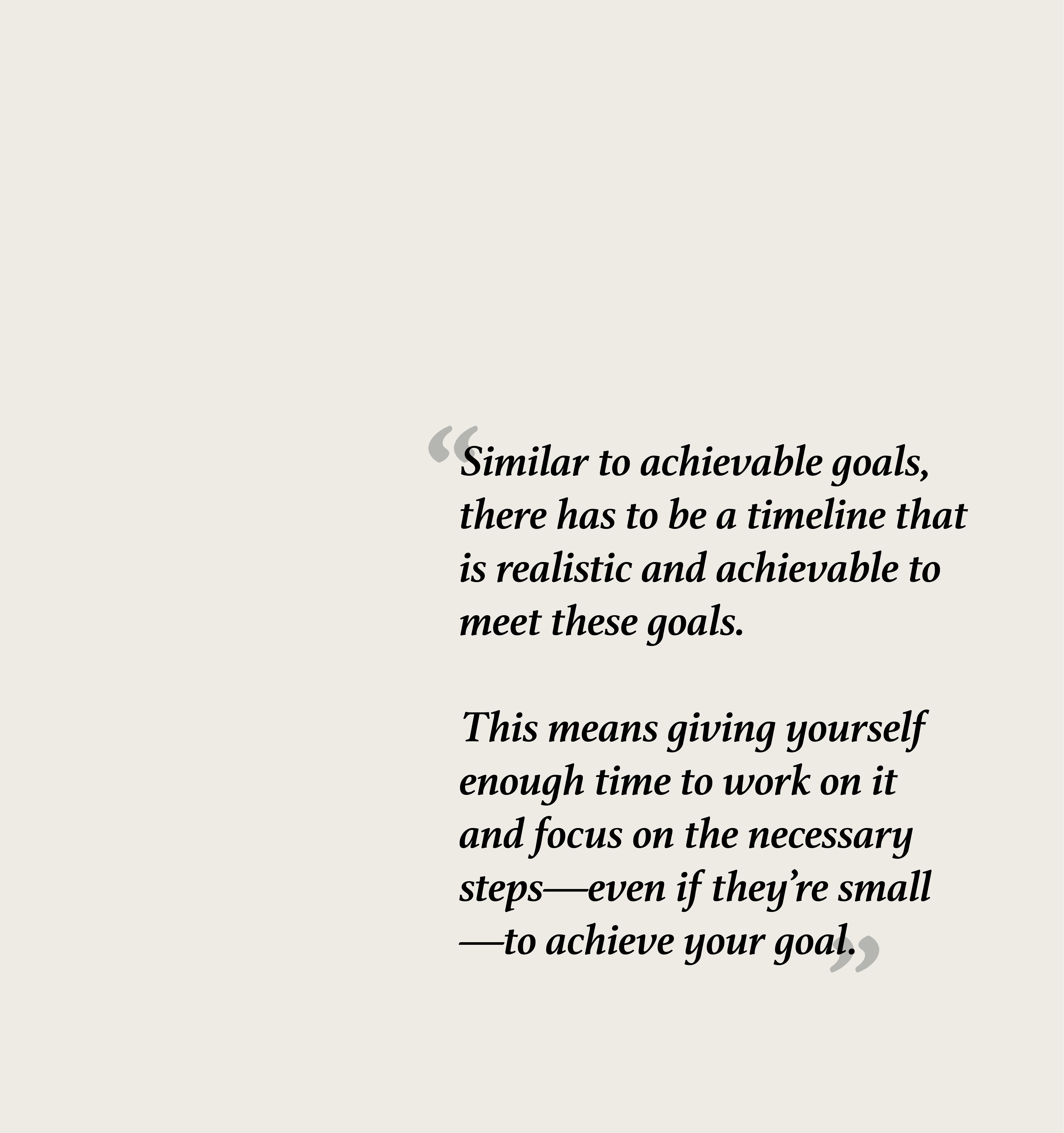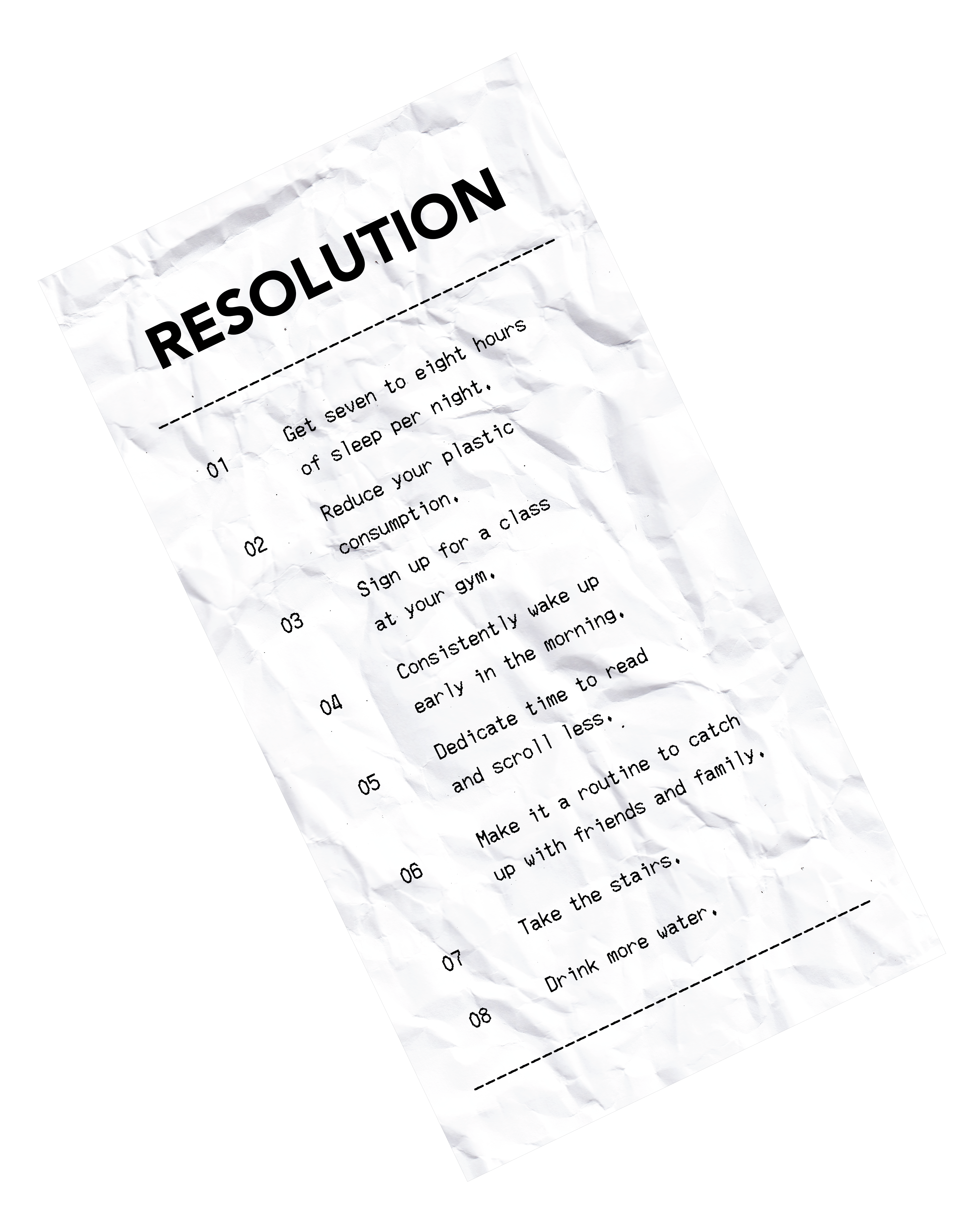How to Set Goals: Preparing Your New Year’s Resolutions

We’re halfway through December, which means 2022 is just around the corner. Whilst waiting for the clock to strike midnight, signaling the start of the new year, it may be wise to do some self reflection. This month is filled with looking inward into the self, as it is the time to evaluate your 2021 resolutions. Read our previous journal to discover some self reflection examples and methods to get you started.
Once you have spent some time looking inward, you can finally take the reflection further by looking outward and towards the future. This is where you set your new year’s resolutions for the purposes of personal growth and self development.
People set new resolutions each year in hopes to outgrow their past self and live a better life. We create goals every time—at home with chores, at work with tasks and deadlines, at school with projects and exams. However, there is a certain art to making goals because we want them to be achievable and crossed off by the end of a certain period.
There is such a thing as the right resolution and/or goal, but it depends on the person setting out to achieve them. A resolution or goal is only right for the person if it is aligned with what he/she aims to achieve out of the journey. The level of success of reaching a resolution or goal can, therefore, be subjective.
In looking forward to 2022—or any new year, for that matter—, we tend to start anew and create new resolutions for ourselves. When setting new goals, it’s important to look inward first before finally deciding on how to move forward with a new set of goals. Once that’s done, creating realistic goals in the form of New Year's resolutions should be easier.
How to set goals
Goal setting needs to be realistic and measurable in order to be evaluated in the best possible way. That’s why goals need to be SMART, which is short for specific, measurable, achievable, relevant, time-bound.
If goals are not SMART, they are bound to fail—that’s because of one of the three main reasons. Firstly, the goal was initially created out of someone else’s (or society’s) experience. Secondly, the goal is too vague to begin with. Thirdly, there is not a realistic plan for achieving these goals from the start (e.g. action plan).
Let’s go over each element of the SMART goal.
Specific goals
Set specific goals and refrain from going too general with your goal setting. This is to subconsciously nudge your brain to become more disciplined in achieving your goal as well. The more specific the goal is, the better you can envision yourself achieving them. It’s also important that these specific goals be concrete. For instance, instead of saying, “I want to lose weight,” you should be saying, “I want to lose five pounds of weight in the next two weeks.”
Measurable goals
Set goals that can be tracked over time—this may be easy for fitness and/or dietary goals, but harder for some other types of goals. The idea is to be able to see whether you have progressed over time after setting these goals. That’s why having visual proof or numerical evidence, and continuously monitoring them are important.
Achievable goals
This is where the realistic part of goal setting comes. In order to achieve certain goals in the time limit that you set for yourself, you need to make them achievable. This can be done by starting with easy, achievable goals and afterwards you naturally work your way up. Continue on with a harder goal each time you have reached your easier goal. In this way, you will then notice your progress.
Relevant goals
Previously, it has been mentioned that goal setting is seen as something subjective. That’s because we need to understand the context in which the goal is set in the first place. This is where relevance plays a role. Ask yourself the following questions, as mentioned by The New York Times: Is this a goal that really matters to you, and are you making it for the right reasons? Don’t let your goal setting be a result of hatred or any other spontaneous, emotional irrationalities. Create your goals in a safe and calm environment.
Time-bounded goals

“Focus on these small wins so you can make gradual progress.” — Charles Duhigg, author of The Power of Habit, and a former New York Times writer.
To illustrate a clearer action plan for your goals, Mr. Duhigg suggested breaking down the habit that you want to change into three parts—a cue, a routine, and a reward. For instance, you plan on stopping your habit of checking Twitter too often. The three parts of these bad habits are as follows (example taken from The New York Times):
- Cue: I feel isolated
- Routine: I check Twitter
- Reward: I feel connected
- New goal to change this: Socialise with a colleague every day at work instead of playing with your phone to check Twitter.
New year’s resolution ideas to get you started

Although some of the goals mentioned above are quite general, it’s important that you personalise them according to how relevant they are to you. Again, these goals can be refined and fine-tuned by following the SMART formula as mentioned before.
What to expect in 2022
Following trends sure isn’t trendy, but there is a different judgment regarding trends when it comes to wellness and wellbeing. Here are three big wellbeing trends to look out for in 2022.
Prioritising your gut health
When it comes to health, there are a lot of considerations, but according to an article by Country Living, “[…] improving your digestion is one of the best things you can do for your wellbeing.” There is an 83% increase in Google searches for ‘gut health’, which can be likened to a good predictor, albeit not the only, for people’s interest in the new year.
But what exactly is gut health? It refers to your digestive system, which is also known as your gastrointestinal (GI) tract. It is the organ that functions to process your digested food, houses a range of bacteria, and absorbs energy and nutrients, whilst also getting rid of waste products from digestion. Perhaps, you could make the Gut Health diet your resolution for the new year. We’ve covered all about it in a previous journal post which you can read here.
Become eco-friendlier and more sustainable
With demands starting to press for more sustainability, consumers and businesses are then adapting to the need to change existing consumption patterns and production chains, respectively. It all starts from the individual desire to change consumption patterns for the better, which will then affect the way businesses produce their goods.
“According to BUPA, there has been a 418% surge in Google searches for climate anxiety, with eco anxiety also increasing by 238%,” as mentioned in the same Country Living article as before. You could make it a new year’s resolution to commit to becoming eco-friendlier and more sustainable.
Paying attention to your skin health
According to L’Oreal’s Skincare Trend Report, “Thanks to the pandemic, there’s now a globally-felt focus on maintaining a strong immune defense that’s reflected in the current skincare conversation.” There is then a strong focus in strengthening skin health defences and consideration for prevention rather than cure from sudden breakouts or bouts of redness.
If you want to make it your resolution to look after your skinmunity—a term coined by dermatologist Dr Uliana Gout—then what you need is to boost on antioxidants to fight oxidative stress that eliminates free harmful agents in the body. Discover 1 People’s Made For More capsule collections of everyday basics, underwear, and loungewear that are made with the innovative, smart fabric that has skin-caring properties for your health. Made with PYRATEX® cosmetic fabrics, which is derived from seaweed-based fibre that retains the rich positive properties of seaweed—including its anti oxidative capacity that cares for the skin.
It’s time to live slower
As mentioned before, becoming eco-friendlier and more sustainable is expected in 2022. The 1 People team sees this as the best time to live more mindfully, and lead a slower lifestyle. This can be done in a number of ways, but mainly there are many benefits to be derived from practicing hygge to get you started. Read more about the benefits of hygge in a previous journal post.
It’s time to venture into the new year wiser and stronger, together. End this year by looking inward to prevent past inconveniences from happening again in the new year. Create new year’s resolutions that will help you grow as an individual and look forward to new experiences and adventures that have yet to come!
Much Love,
1 People












